Intro
Recover smoothly from gallstone surgery with our comprehensive guide, covering post-op care, dietary changes, and managing symptoms, to ensure a speedy and comfortable recovery from gallbladder removal.
Recovering from gallstone surgery can be a challenging and delicate process. It's essential to understand the importance of proper care and attention during this time to ensure a smooth and successful recovery. Gallstones are a common health issue that affects millions of people worldwide, and surgery is often the most effective way to treat the condition. In this article, we will delve into the world of gallstone surgery recovery, exploring the benefits, working mechanisms, steps, and key information related to the topic.
The decision to undergo gallstone surgery is not taken lightly, and it's crucial to be aware of the potential risks and complications associated with the procedure. However, with the right guidance and support, patients can navigate the recovery process with confidence and ease. Whether you're preparing for surgery or already on the road to recovery, this comprehensive guide will provide you with the knowledge and insights you need to make informed decisions and take control of your health.
Gallstone surgery, also known as cholecystectomy, is a surgical procedure that involves the removal of the gallbladder, a small organ located under the liver that stores bile. The surgery can be performed using open or laparoscopic techniques, with the latter being the most common method. Laparoscopic cholecystectomy is a minimally invasive procedure that involves making small incisions in the abdomen to insert a laparoscope and surgical instruments. This approach typically results in less pain, scarring, and recovery time compared to open surgery.
Gallstone Surgery Overview

To understand the recovery process, it's essential to grasp the basics of gallstone surgery. The procedure typically takes about 1-2 hours to complete, and patients are usually given general anesthesia to ensure comfort and relaxation. During the surgery, the surgeon will make small incisions in the abdomen and insert a laparoscope, which is a thin, lighted tube with a camera and surgical instruments. The surgeon will then locate the gallbladder and carefully dissect it from surrounding tissues, before removing it through one of the incisions.
Benefits of Gallstone Surgery
The benefits of gallstone surgery are numerous, and the procedure can significantly improve the quality of life for patients suffering from gallstones. Some of the advantages of gallstone surgery include: * Relief from gallstone symptoms, such as abdominal pain, nausea, and vomiting * Reduced risk of complications, such as gallbladder inflammation, infection, and rupture * Improved digestion and nutrient absorption * Enhanced overall health and well-being * Minimally invasive procedure with less scarring and recovery timePreparation for Gallstone Surgery Recovery
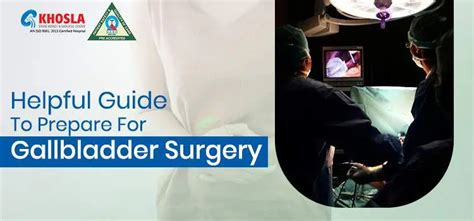
Preparing for gallstone surgery recovery is crucial to ensure a smooth and successful outcome. Patients should follow their surgeon's instructions carefully, which may include:
- Avoiding heavy meals and drinks for 24 hours before surgery
- Stopping certain medications, such as blood thinners and diabetes medications
- Arranging for someone to drive them home after surgery and stay with them for a few days
- Preparing their home for recovery by setting up a comfortable resting area and having essentials within reach
Steps to Take After Gallstone Surgery
After gallstone surgery, patients should follow these steps to ensure a safe and successful recovery: 1. Rest and avoid strenuous activities for 1-2 weeks 2. Take pain medication as directed by the surgeon 3. Follow a liquid diet for 1-2 days, gradually introducing solid foods 4. Attend follow-up appointments with the surgeon to monitor progress 5. Avoid heavy lifting, bending, or strenuous exercise for 4-6 weeksGallstone Surgery Recovery Time
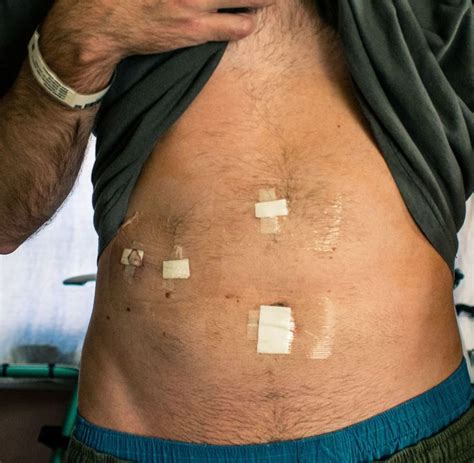
The recovery time for gallstone surgery varies depending on the individual and the type of surgery performed. Generally, patients can expect to:
- Spend 1-2 days in the hospital after surgery
- Take 1-2 weeks off work or school to rest and recover
- Avoid strenuous activities for 4-6 weeks
- Return to normal activities and exercise within 6-8 weeks
Common Complications and Risks
While gallstone surgery is generally safe, there are potential complications and risks associated with the procedure. Some common complications include: * Infection * Bleeding * Adhesions * Injury to surrounding organs * Respiratory problemsGallstone Surgery Recovery Tips
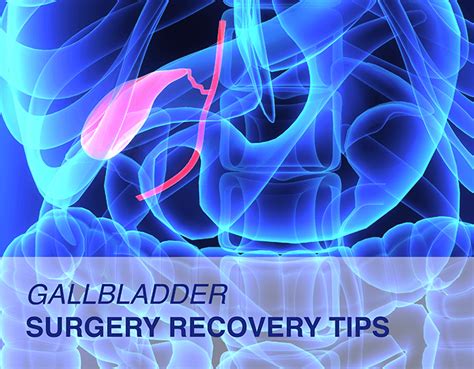
To ensure a smooth and successful recovery, patients can follow these tips:
- Stay hydrated by drinking plenty of water and clear liquids
- Eat small, frequent meals to avoid discomfort and nausea
- Avoid heavy lifting, bending, or strenuous exercise
- Take pain medication as directed by the surgeon
- Attend follow-up appointments with the surgeon to monitor progress
Nutrition and Diet After Gallstone Surgery
A healthy diet and nutrition plan are essential for a successful recovery after gallstone surgery. Patients should: * Follow a liquid diet for 1-2 days, gradually introducing solid foods * Eat small, frequent meals to avoid discomfort and nausea * Avoid fatty, greasy, or spicy foods that can irritate the digestive system * Include foods high in fiber, such as fruits, vegetables, and whole grainsGallstone Surgery Recovery and Follow-Up Care
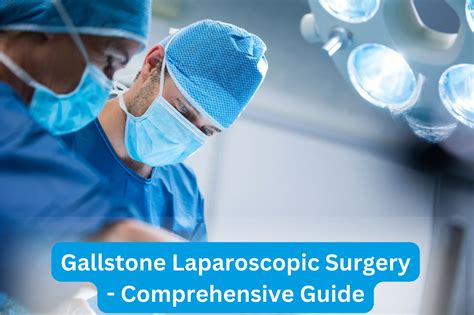
Follow-up care is crucial after gallstone surgery to ensure a successful recovery. Patients should:
- Attend follow-up appointments with the surgeon to monitor progress
- Follow the surgeon's instructions for wound care and dressing changes
- Take pain medication as directed by the surgeon
- Contact the surgeon immediately if they experience any signs of complications or concerns
Emotional and Mental Support During Recovery
Recovering from gallstone surgery can be emotionally and mentally challenging. Patients should: * Seek support from family and friends * Join a support group or online community to connect with others who have undergone similar experiences * Practice stress-reducing techniques, such as meditation, deep breathing, or yoga * Seek professional help if they experience anxiety, depression, or other mental health concernsGallstone Surgery Recovery and Lifestyle Changes
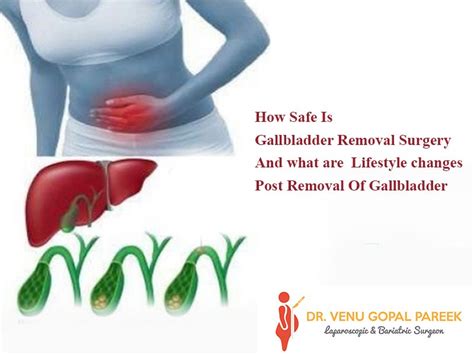
After gallstone surgery, patients may need to make lifestyle changes to ensure a healthy and successful recovery. Some lifestyle changes include:
- Eating a healthy, balanced diet
- Avoiding fatty, greasy, or spicy foods
- Exercising regularly, such as walking or light stretching
- Managing stress and anxiety through relaxation techniques
Conclusion and Final Thoughts
In conclusion, recovering from gallstone surgery requires patience, dedication, and the right guidance. By following the tips and advice outlined in this article, patients can ensure a smooth and successful recovery. Remember to stay hydrated, eat a healthy diet, and attend follow-up appointments with the surgeon. With time and proper care, patients can return to their normal activities and enjoy a healthy, gallstone-free life.What are the symptoms of gallstones?
+Gallstone symptoms include abdominal pain, nausea, vomiting, and fever. If you experience any of these symptoms, seek medical attention immediately.
How long does gallstone surgery take?
+Gallstone surgery typically takes 1-2 hours to complete, depending on the individual and the type of surgery performed.
What are the risks and complications of gallstone surgery?
+Risks and complications of gallstone surgery include infection, bleeding, adhesions, injury to surrounding organs, and respiratory problems. However, these risks are rare and can be minimized with proper care and attention.
We hope this comprehensive guide has provided you with the knowledge and insights you need to navigate the recovery process after gallstone surgery. Remember to stay informed, follow your surgeon's instructions, and prioritize your health and well-being. If you have any further questions or concerns, don't hesitate to reach out to your healthcare provider or leave a comment below. Share this article with others who may be going through a similar experience, and let's work together to promote health, wellness, and recovery.
